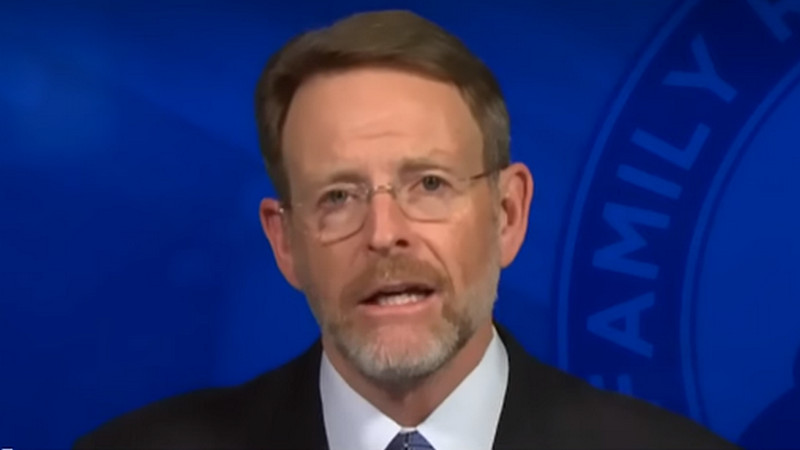Tony Perkins, president of the Family Research Council, told radio listeners Wednesday that activists demanding the removal of monuments of Confederate leaders, colonizers, and slaveholders from publicly owned property is “dangerous.”
“This is a dangerous process of trying to purge—it’s a purge of U.S. history,” Perkins told “Washington Watch” listeners, equating statues honoring such men for history.
He took a moment to clarify that he believes that slavery and the U.S. government’s breaches of treaties with Native Americans were both a “tremendous blight on the American experiment of freedom” and are issues of “legitimate concern.” But some people, Perkins said, are taking those legitimate concerns and “using it for an illegitimate cause: the destruction of our country.”
“Yes, you heard me right. There are those who want to destroy our republic. Now, I’m not talking about those who are peacefully protesting, who I may or may not agree with on all matters, but I support their right to march in the streets and bring attention to the issues at hand peacefully. I support it. Even though I may disagree with them, I support that right. That’s what makes America great,” Perkins said. “But there are some who are using the peaceful protesters as a smokescreen for their own agenda.”
Perkins warned that granting concessions and removing some monuments will only lead to more demands.
“Don’t think for a moment that appeasement will come when mayors and governors step aside and allow the destruction of statues or, has been the case in some jurisdictions, where officials themselves have removed the historical figures at the demand of the mobs,” Perkins said. “If anything, the attempts at appeasement will only increase the demand for more.”
Perkins shared what he said was guidance on the issue found in the Bible. Perkins said that the telling of history in the Bible is not spun to exclude negative information about its characters and that neither should American history. Rather, Perkins notes that the Bible include characters’ flaws in order to tell stories of redemption—just like what he says is the story of America.
“We’re not a perfect union, but we are moving in that direction, and that is a part of our history. What we are seeing is significant, and it is dangerous. Historically, on very few occasions do statues topple alone without governments going with them. Is this a time for us to stand firm and strong, acknowledging the failures of America’s past but also embracing its promise for the future, and not allowing those who seek to purge us of history in this illusive effort of a utopia like so many others have tried in Communist Russia, Europe, and elsewhere? This is the American experiment,” Perkins said. “We have to defend it.”








